Oct 11 is National Coming Out day. But what does it mean to come out to a family that might have a different point of view?
Xtra spoke with LGBT Canadian youth to learn about their experiences coming out to their immigrant families.
These interviews have been condensed and edited for clarity.
Ryan Tran, Toronto
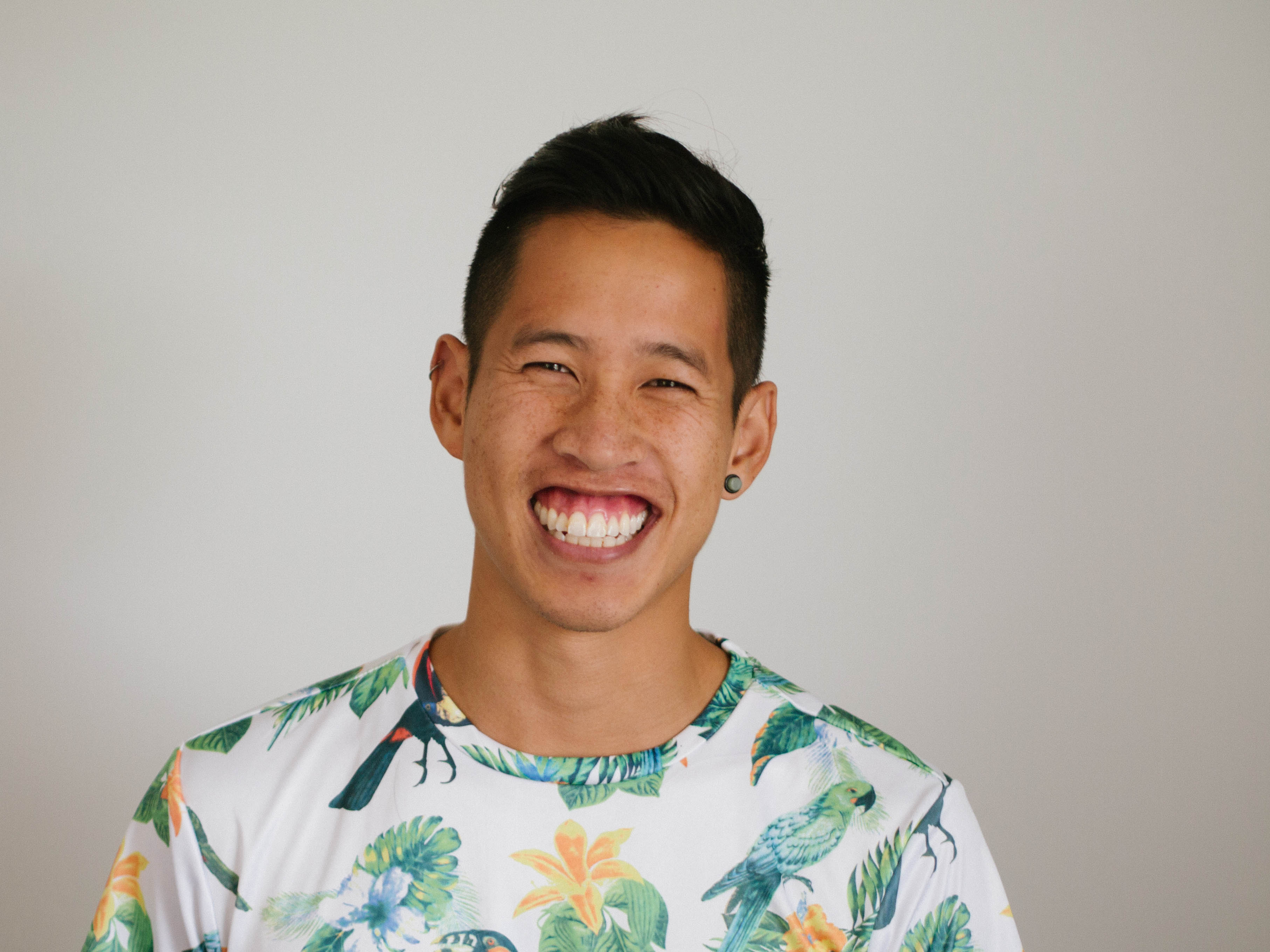
Ryan Tran is a second-generation Canadian from Toronto. Credit: Courtesy of Ryan Tran.
Ryan Tran was born and raised in Toronto. His parents immigrated to Canada from Vietnam during the last year of the Vietnam War.
I started bringing home a guy I was seeing — disguised as a friend, of course. I was still staying with my parents at this time. He came over one night. I think I was being very cocky or brave . . . one or the other. But we were holding hands in the living room watching a movie, and my mom actually caught us. I guess she just crept up from behind and saw that we were holding hands. After the guy I was seeing left, she kind of cornered me and started pretty much yelling lots of interrogation questions.
“Are you going to grow up to marry a woman?”
“Are you going to have kids?”
“Are you straight?”
She was just so frantic and it was a little scary, especially at that time. I was 17. So I just said, “yes,” to everything. I did not see this coming. So from that point on it was awkward for quite a long time. I think she would every once in awhile try to ask questions about whether I’d still be straight, and if I was “still on the path of having kids and being married to a woman.” And it always scared me. I think my mom would try to say something just to get something out of me but I’d always ignore it.
Then I moved out for university. After a few years of living on my own, once in awhile my parents would come by and drop off food for me. One of these times my mom just pulled me over and was like, “I wanted to tell you I know your secret.” And I was like, “what secret?”
She goes, “I know, and it’s okay. I just want you to be happy. I want to tell you that we’re all accepting in this family. As long as you are happy.” Her words were, “I feel so sorry that you have to live as a gay person in this society that’s homophobic. That’s going to be hard for you.”
At that point we hugged, and then that was it. That definitely bridged a lot and we got closer. I eventually asked her how she came to this point, from out of the blue. I thought she was always going to be homophobic or never accepting. And she said that it took her awhile. She had to read a lot. And read about all of these things; what does it mean to be LGBT or gay, does that lead to HIV/AIDS?
I was relieved because in a way, it was almost a little traumatizing, that first time. I only found out later that she actually wanted to talk about it more. I didn’t realize this — I was just so scared. But that was her way of trying to open up the topic.
When she first caught us, she said that it was just such a shock for her. She just had this idea that I would be straight. It completely changed her whole point of view. Now I understand where she was coming from and I really appreciate that she took the time to research everything. I realize now that she was in the dark for so long and my parents had to figure things out themselves because I wasn’t going to tell them anything.
Laur Flom, Toronto
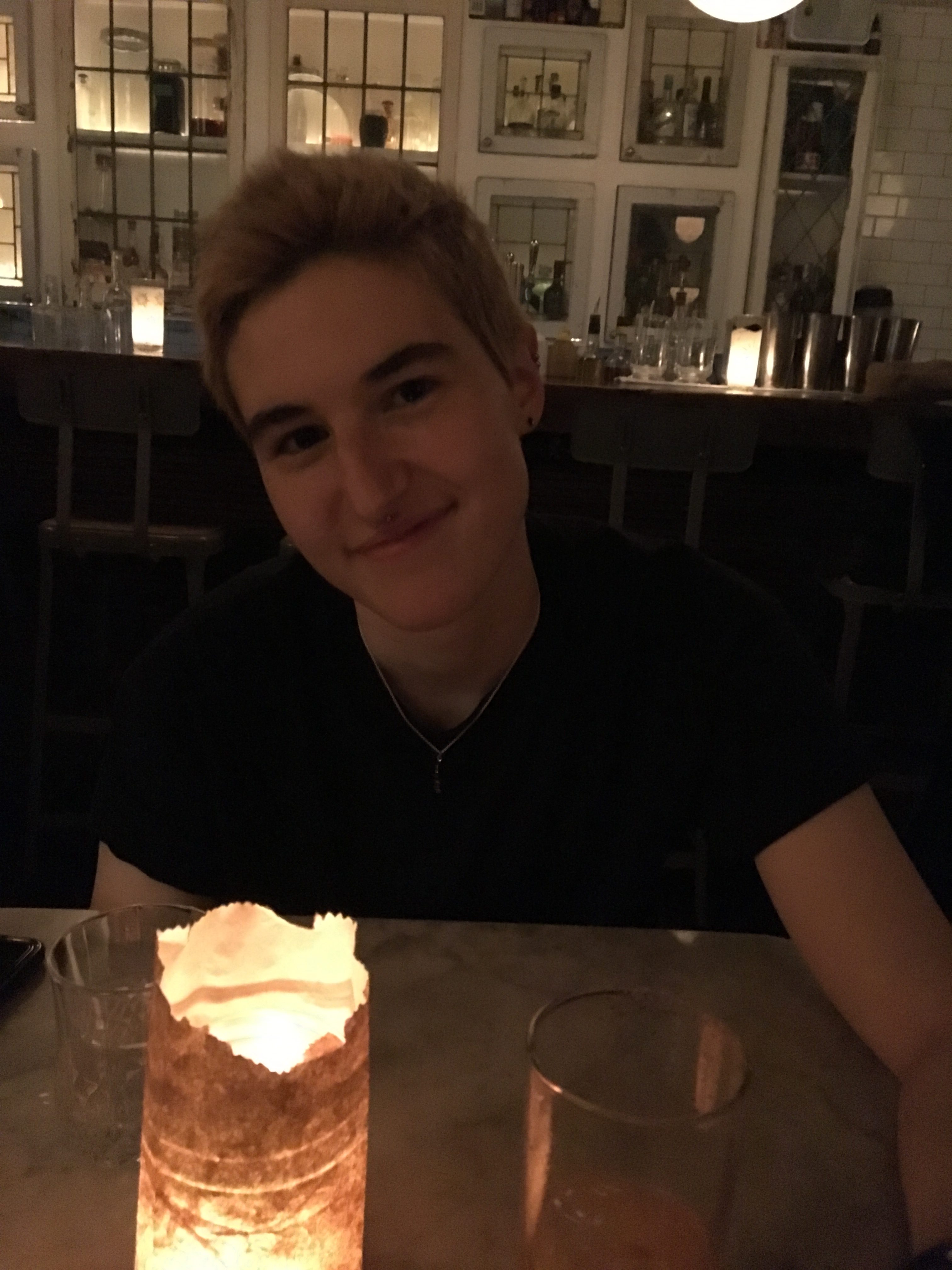
Laur Flom is a 2.5-gen Canadian from Toronto. Credit: Courtesy of Laur Flom.
Laur Flom is from Toronto. Their mother was raised in Russia and immigrated to Ontario as a youth.
I was, in a way, lucky — and in another way, not so lucky. My sibling came out twice before me and I got to come out twice too. They had come out, and my parents were like “sure, okay.” So I pretty much knew what their reactions were going to be. The less fun part was my mom’s question of, “are you just doing this because your sibling is doing this?” And I was like, “no.” So I think she’s open-minded because she came here young enough that she wasn’t super affected by the views that communism holds [about the LGBT community].
But she never really worked to understand how any of the LGBT stuff works. I think it’s mostly just ignorance, and not really wanting to learn about it, but not not accepting. Just being like:
“Sure. Alright.”
“Do whatever you want.”
“I don’t get it.”
I wasn’t nervous about coming out, but my mom wasn’t happy about it. But was as accepting as she can be, I guess.
It wasn’t even a sit-down thing. It was basically like, “hey, I’m gay.” And then like, “hey, I’m trans.” But she doesn’t really like to ask questions about that kind of stuff, and if it’s something that she doesn’t want to talk about, she just won’t talk about it. So it was very much me coming out and her just being like, “okay,” and then that’s it, which I’m not mad about.
Obviously, I wish that they didn’t think that I was doing it because my sibling did it. But I guess I don’t really wish it was a different way, I don’t put that much importance into my coming out, so I never really think about it. I know my mom isn’t interested in learning about that stuff. I guess I wish could try to help them learn or care more about it.
Carlyle Chan, Vancouver
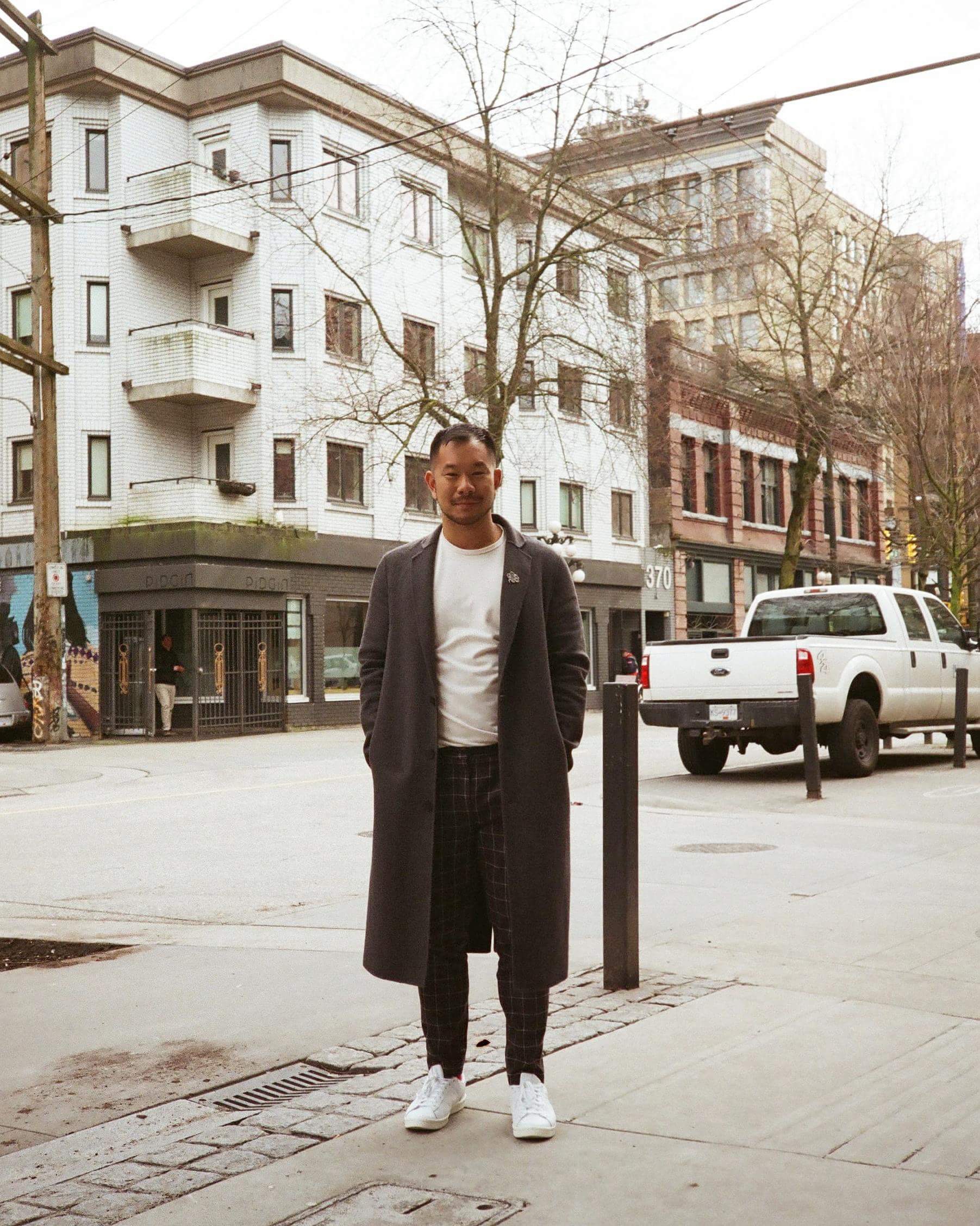
Carlyle Chan is a second-generation Canadian from Vancouver. Credit: Courtesy of Carlyle Chan.
Carlyle Chan was born in Vancouver and raised just outside of the city centre. His mom is Filipina and his father is of Chinese descent. In the 1970s his parents immigrated to Canada from the Philippines.
The Philippines is Catholic and really religious, and on my dad’s side, Chinese culture is very stoic. To be a man is to not show emotion and to give tough love — very much the quote of, “if you’re choosing to be loved or be feared — be feared,” is ingrained in his fatherly upbringing.
So exposure to LGBT community wasn’t very pervasive for either of them. They had family members who were gay, but it’s not anything talked about. It’s not openly accepted.
Telling your friends, I feel, is way easier than telling your family, because the stigma of disappointing your family. The stigma of them disowning you, or kicking you out, or even beating you. I don’t know, that’s probably just one of my biggest fears — being disowned as a 20-something year-old adult gay male. I was definitely nervous. I mean, it’s your parents. It’s sharing with them a part of who you are your entire life, but you’ve kept it a secret.
It was a summer day and I actually stole my sister’s digital camera, because we used digital cameras back then. And I received a text from my parents saying, “family meeting tonight,” and they were very upset. They were like, “why’d you steal your sister’s camera?” And they were kind of questioning my life choices and my friends. I felt like it was a roast, or that they were grilling me, and it just actually came out.
I started crying, wailing actually. And I hid behind my hands and said to my family, “I want you to know that I like boys,” and it was silent for a couple seconds, which seemed like eternity. And I heard my mom sobbing. That was the first thing I heard — just her sobbing, and that reaffirmed my fear of telling my family.
But my dad shortly after said to me, “Lyle, you’re my son and I love you. I don’t think you could ever think that we would disown you for being who you are,” and I felt a sigh of relief. It felt like the first time you breathe: the first time breathing and being who you are because it was out in the open. No more secrets, just genuine, honest truth.
And to break up the seriousness of it all, my older sister, who is kind of a little shit, said, “oh, I knew all this time, Lyle.” There was sadness from my mom; there was just courage, bravery and love from my dad; and humour from my sister.
In a way, that’s kind of the best scenario for any young gay person coming out. It’s what you want to hear. “Oh, we knew the whole time.”
Mathilda Kane, Toronto
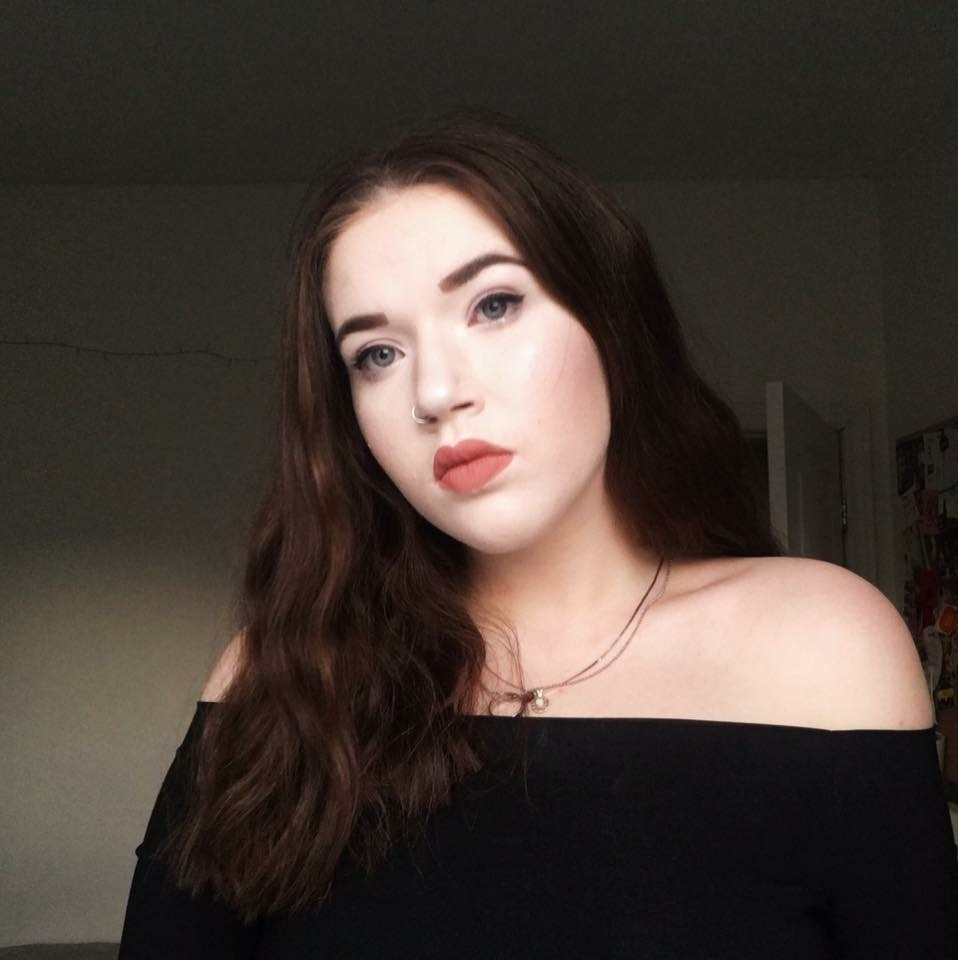
Mathilda Kane is a 2.5-gen Canadian from Toronto. Credit: Courtesy of Mathilda Kane.
Mathilda Kane is from Toronto. Her father immigrated to Ontario from Scotland as a child. Her maternal grandparents are from Germany and Guyana, and her paternal grandparents are from Scotland and India.
The way I describe my parent’s support is support from a distance. They don’t really know anything. Not in a way that’s, “don’t do that in front of me.” Just, “I don’t really understand what you’re doing, but have fun.”
With my parents, I wasn’t really nervous. I never personally felt that coming out was very important. I feel like being queer is just as much as a fact about me as having brown hair or blue eyes. And it was just something that I always felt that people would either kind of figure out eventually or would naturally come up at some point. When I did formally come out to my parents and my family, it wasn’t as much about coming out as it was about telling them I was dating a girl. It was more about, “this is someone who is important in my life who’s not just a friend. And I would like you to acknowledge that this is someone that’s important to me.”
Actually, when I came out, I was like “Mom, I’m queer,” And she was like, “oh, yeah, I figured,” in a very supportive way, but it was just very funny that my mom’s only reaction to me being queer was, “yeah, I don’t care.” And I was like, “okay, thank you.”
With my grandparents, I was nervous. I didn’t really have a frame of reference of how my grandparents would react. I know that both sets have a similar view as my parents of, “I don’t understand, but that’s fine,” so I wasn’t too worried. But I wasn’t sure how it was going to go.
They came to see a show that I directed. It was the closing night and my girlfriend was there. I think my mom kind of briefed them before it happened. She said something along the lines of, “I think Mathilda’s girlfriend might be there.”
My dad’s father is very hard of hearing, almost deaf, and I think in my mom’s briefing she maybe didn’t say it loud enough for him to hear. So when I was introducing [my grandfather and my girlfriend,] I was like, “oh granddad, this is my girlfriend.” And he was just kind of like “oh, hello,” and went to shake her hand. He understood that I was introducing him to someone, but definitely had no idea who she was or why he was being introduced — I immediately realized in the way that he was greeting her.
I was like, “oh shit.” So I leaned into his ear and was like “THIS-IS-MY-GIRLFRIEND.” And he was like, “Oh! Hello!” And then hugged her. It was pretty funny. Luckily, they were all pretty fine. They just said, “hello” and that was it. And now my grandmother is begging to meet [my current partner].
I think I got really lucky just in the fact that they both experienced relationships that at the time were outside the social norm. They are a little bit more empathetic and understanding that it’s just a different type of relationship and that it’s not really anything different than a heterosexual relationship.
Sean Reilly, Vancouver
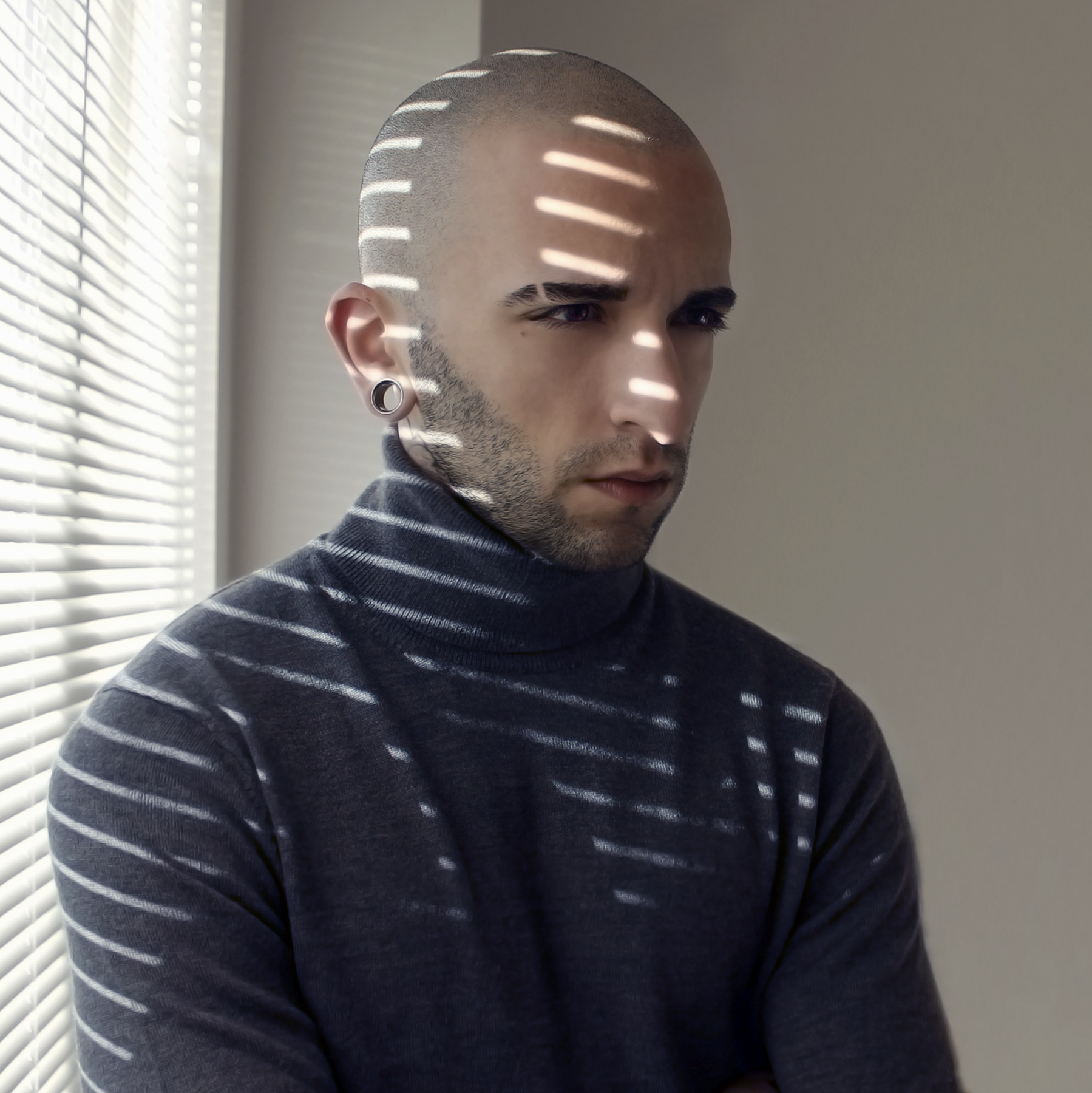
Sean Reilly is a second-generation Canadian from Vancouver. Credit: Courtesy of Sean Reilly.
Sean Reilly is from Vancouver. His mom is Portuguese and dad is Irish, and both grew up in Catholic households.
Growing up I went to a Catholic school, which was judgmental and the image of homosexuality was very skewed. It was hard because we would get these messages from our really strict grade school and then we’d come home really confused. And my mom would be really upset. She was always having conversations with us. We’re a very talkative family — it’s always about communication. So all of us would be sitting down together and talk about those things.
So that was challenging: getting one message from school and from my peers and teachers, and then another one from my parents.
And my biggest issue that I had in my life was that there was no representation of what it was to be a gay man. I didn’t understand because with any representation that I had in the media, or other classmates, or my brother’s friends, they would be extremely flamboyant or a caricature. There isn’t a representation that being gay is just based on who you fall in love with. It has nothing to do with how you dress, how you act, or what you like. It’s just who you love.
For me, I was impressionable and a little confused by these images that I was trying to relate to but couldn’t. I knew I was gay — I knew right away. I just didn’t know exactly what it was. I kind of decided in high school that I knew I wasn’t straight. I just wasn’t ready to be gay yet.
So, finally, when I was 18 I sat down with my parents and I told them that I was gay. And of course I was all upset and being very dramatic. But they didn’t care. It was nothing. It was literally as though I said, “pass the butter.”
They just hugged me lovingly, and then something really profound happened. My dad is a man of very few words — he’s very wise. He came into my room afterwards and said, “So brave. I’d never have the guts to go and stand in front of my parents and tell them that I was straight.”
It was his way of validating the craziness of having to tell my parents my sexuality and that it’s such a huge thing — that he never had to do that and wouldn’t have been as brave as I was. And it’s still something they say today.
What happened years later, when my sister-in-law was pregnant with my nephew, I started thinking about all of these things that happened to me when I was a kid that we won’t do to him [my nephew]. It started from watching family movies, and one of the interesting scenes was my dad teasing me about having a girlfriend. You can see in my face, even at six or seven — it just sunk. It really hurt me.
It brought up all of these conversations because my parents always said, “you never had to come out.” But when you assume someone’s sexuality, when you say, “you have a girlfriend,” or “you have a boyfriend,” you’re building a wall around them. You are building that closet. So you make that person have to come out and tell you, and we can’t do that anymore.
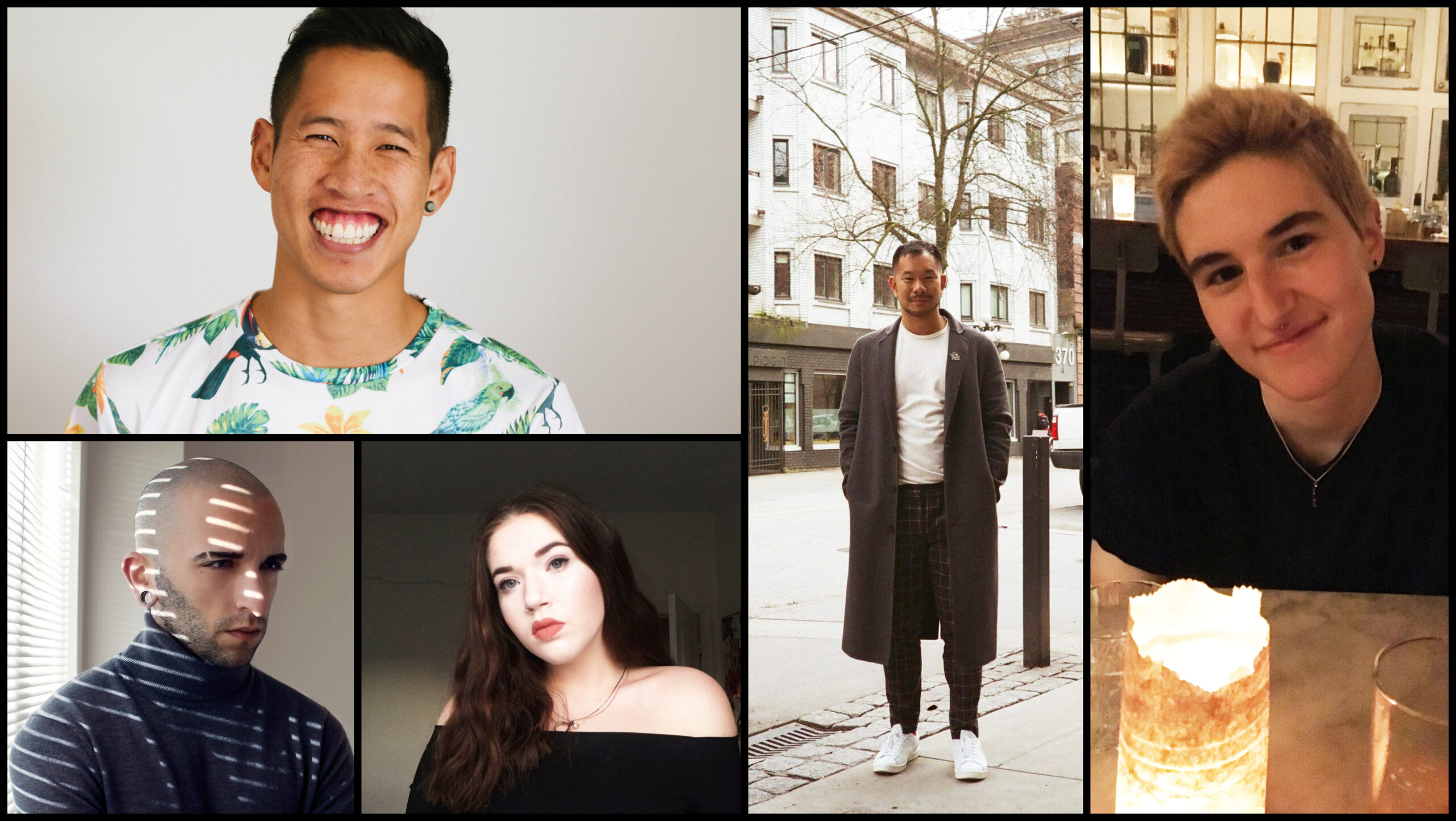

 Why you can trust Xtra
Why you can trust Xtra


